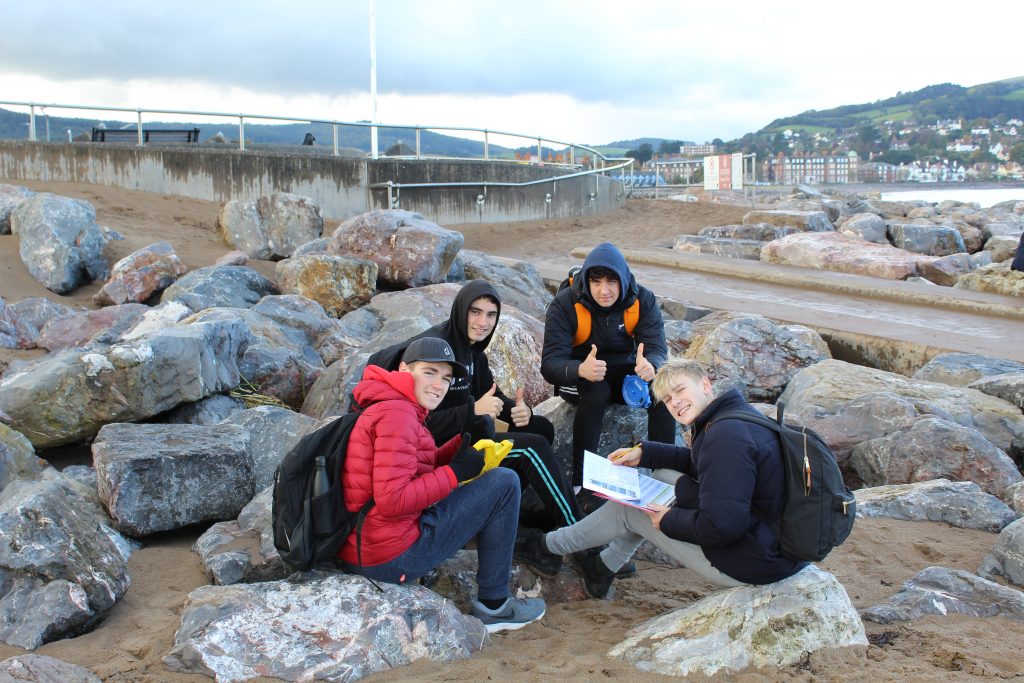18 geographers travel to Somerset for pilot study, fieldwork techniques and data collection
Last Friday, 18 geographers, accompanied by 34 A-level biologists, made the trek down to Somerset for a weekend of field work.
On arrival at the Nettlecombe Field Studies Council Centre, students were given a tour and were told about the strict rules on sustainability, such as the composting of food waste and recycling in the correct bins. Shortly after, the two subject groups split and the geographers were given some preliminary guidance and advice for a pilot study which they would be completing in the small town of Watchet that afternoon.
The purpose of this trip is to support geography students with their NEA (non-examined assessment coursework project) which is worth 20% of the total A-level marks. The NEA is a completely independent project and students must devise and produce it themselves on anything relating to the A-level specification.
On Friday afternoon, the students duly embarked on their trip to Watchet to practise some ‘Changing Places’ fieldwork techniques that they could use in their real data collection day on Sunday. Friday evening involved reflections on the day and preparation for the next day in Minehead with ‘Coastal Management’ data collection techniques.
Saturday dawned and the group were lucky to dodge the rain in Minehead, as they explored the area using a range of qualitative and quantitative fieldwork techniques they could adopt for their real data collection project. In the afternoon and late into the evening there was much brainstorming as the students completed their project proposals which were then signed off before their real data collection exercise on Sunday. A much-needed early night was taken by all to prepare for a full day on the last day of the trip.
Some students completed their data collection in Watchet, focusing on the ‘Changing Places’ area of the course, but the majority travelled to Minehead to complete their project on a range of topics including, but not limited to: coastal management techniques, impact of external agencies and TNCs in the area, and the perception of place between ‘insiders’ and ‘outsiders’. They all worked productively and collected some good quality data which they will be able to use as the foundation for their NEA projects.
“Overall, a fantastic trip, and as usual, the staff at the FSC Nettlecombe Centre were superb,” Beccy Bownas, Head of Geography.

